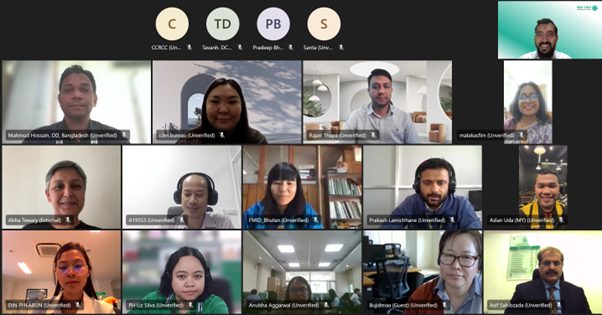Please find the recording of the network meeting on our YouTube channel here.
Background
A key result of the Paris Agreement negotiations was the establishment of an enhanced transparency framework for tracking and reporting the progress of existing and future country commitments, with built-in flexibility included for developing country Parties. As a request of Parties, the Capacity-building Initiative for Transparency (CBIT) was established by the Global Environment Facility (GEF) in 2016 to support developing countries to build and strengthen their institutional and technical capacities to meet the enhanced transparency requirements defined in Article 13 of the Paris Agreement on Climate Change. COP 21 decided that the aim of CBIT is to: Strengthen national institutions for transparency-related activities in line with national priorities; Provide relevant tools, training, and assistance for meeting the provisions stipulated in Article 13 of the Paris Agreement; Assist in the improvement of transparency over time. As of November 1, 2023, out of the 94 CBIT projects, the GEF has supported 84 individual country projects, one regional project (comprising four countries), and seven global projects. Resources are allocated based on country demands on a first come, first served basis. Fourteen of these projects have completed implementation and are encouraged to submit requests for support for subsequent CBIT phases.
The significance and advantages of CBIT project initiatives are amplified when there is a seamless collaboration and alignment with other ETF-linked undertakings, such as the development of a National Communication, a Biennial Update Report, or a Biennial Transparency Report. Bangladesh is among a select group of Asian countries that received early approval from the GEF CEO for the CBIT project on August 6, 2019. Country has submitted three National Communications (NCs) and one national adaptation plan to the UNFCCC. The first biennial update report is currently in its concluding phase and is anticipated to be submitted imminently. Bangladesh benefited greatly from the CBIT Phase I project in terms of capacity building for all stakeholders, strengthening current institutional networks, robust data management, and properly establishing a QA/QC process. The country is currently advancing swiftly in its efforts to execute the ETF and develop its BTR roadmap tool in anticipation of producing its first Biennial Transparency Report (BTR) by the end of 2024.
Objective
The main objective of the virtual exchange is to share the benefits and outcomes of the CBIT Phase I project in Bangladesh, Laos and Mongolia with other members of the Regional Transparency Network of the Asia Region. Participants will have the opportunity to ask questions and engage & exchange with each other.
